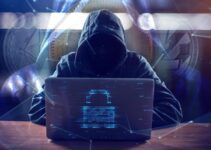Cyber attacks are a common threat facing businesses of all sizes, from small startups to global franchises.
Phishing is the most frequently occurring of those different types of attacks – perhaps because, despite their often unsophisticated nature, they use human psychology against us to access our sensitive information.
Fortunately, there are several things your business can do to increase its defences against this type of attack. One of the most effective strategies revolves around education. By training your employees to recognise and avoid phishing scams, you stand a much greater chance of protecting your company’s vital data from outside interference.
Keen to find out more? Read on to discover how IT training, such as the courses provided by specialist IT consultancy firms, can help prevent phishing attacks and other forms of cyber threats and improve your business’s cybersecurity.
What Is Phishing?

Source: globalsign.com
First things first, let’s explore what phishing entails. Phishing attacks appear in emails, often purportedly from an authority figure or from a supposedly trusted company – sometimes even from an employee in your own company.
These emails will have a subject line designed to grab the attention of their victims, either by making some urgent proclamation or by offering some form of enticing reward – usually in the form of money.
When the recipient opens the email, they usually find a link they are asked to follow. When they do, they will then be asked to provide their sensitive information in order to obtain the supposed reward or mitigate an apparent problem mentioned in the email’s subject.
Phishing is a form of cyber attack that is designed to trick individuals into divulging sensitive information, such as login credentials or financial details. The perpetrators of phishing attacks use social engineering tactics to deceive their victims and gain their trust, often by impersonating a legitimate individual or organization. These attacks can take many forms, from emails to social media messages, and can be highly sophisticated and convincing. For instance, the emails or messages may be designed to look like they come from a trusted source, such as a bank or social media platform, and may contain logos and other branding elements to enhance their credibility. Once the victim clicks on the link contained in the email or message, they are directed to a fake website that looks identical to the legitimate one. They are then prompted to enter their personal information, which is captured by the attacker and used for fraudulent purposes such as identity theft or financial fraud. Phishing attacks can have devastating consequences, both for individuals and for businesses. It is therefore essential to remain vigilant and to take steps to protect yourself against this type of cyber attack. This may include being wary of unsolicited emails, verifying the authenticity of messages and websites before providing any sensitive information, and using anti-phishing tools and software to protect your devices and networks.
The Link Between Our Troubled Times And Phishing Attacks

Source: ncsc.gov.uk
Although phishing attacks may not seem as nefarious as viruses or spyware, they can be worryingly effective because they play on our biggest hopes and fears.
As a result, these types of scams are particularly effective during national or global turmoil. For example, as the Covid-19 pandemic unfurled across the world, phishing attacks in the UK rose by a shocking 73%. Many of these phishing emails revolved around using financial lures, such as supposed tax rebates linked to the pandemic. Later, other phishing attacks used the promise of a Covid vaccine to tempt people to provide their bank details.
More recently, as the cost of living crisis tightened its grip on the UK, a new wave of scams emerged in emails and texts, purporting to offer assistance payments or tax rebates to help ease people’s financial strain.
The Importance Of IT Training

Source: kenfil.com
When it comes to warding off the threat of cyber-attack, education is key and should be factored into your business continuity plan, which you should review and enhance with the help of experienced IT consultants through digital transformation for more information, click here.
While you can certainly use technological solutions to help prevent attacks – such as phishing filters – these safeguards won’t always be entirely effective, as they rely on machine learning, which a particularly sophisticated attack can fool. That’s why investing in staff training is so crucial.
However, the type of training you decide to use is important. Getting all of your employees together for one cybersecurity seminar may not be enough to provide a genuine form of defence. In fact, in all probability, it will probably bore most of your staff to the point where they may not even absorb the relevant information.
Instead, with the help and expertise of an IT consultancy firm, you should come up with a multi-faceted approach to cybersecurity. This will help to significantly improve your chances of guarding your company’s data by ensuring that your employees have the skills, awareness and confidence necessary to spot a threat before it’s too late.
Creating The Right Culture In Your Company

Source: groupon.com
This holistic approach to cybersecurity training should include creating and fostering a positive and supportive culture of education and understanding.
To achieve this kind of environment in your workplace, you should consider the following factors:
- Conducting simulated attacks can help staff get a clearer picture of the kind of ‘red flags’ they should look out for.
- Educating your staff on the personal importance of protecting themselves against phishing is as important as discussing the professional aspect. By emphasising how their training can help them personally, you increase the likelihood that they will be more aware of the threats at work.
- Mistakes happen. If you have run a phishing simulation and some of your staff clicked on the fake link and followed it through, it’s important to react with understanding and support rather than condemnation.
- Training sessions may need to be repeated regularly. Due to the threat’s severity, you should ensure you continue to educate and prepare your employees for a potential attack.
With phishing attacks posing a serious financial and legal threat to companies of all kinds, investing in a well-rounded cybersecurity education for your staff is more important than ever. As they say, prevention is better than cure – and this is particularly true regarding phishing!




